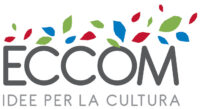This is a word that includes many others. Words and storytelling are the first tools that human beings invented to understand the world. In the same way, narrating one’s own story is a fundamental tool to give meaning to one’s life and experiences, often the latter become intelligible only after they have been communicated to others. Narration is also a political tool: nation states have their own narration of their origins, just as all major political movements have an ideology and slogans that delimit their own action. For these two reasons narrating is fundamental: we need alternative narratives to counter apathy and the flattening of minds in the comfort of a single and unified vision. For example, talking about cultural syncretism and the centrality of the Mediterranean Sea, already in ancient times, in order to refute those who want us to believe that Italians have been a people since the beginning of time and that Africa is far away. Personal narratives exist in order to understand oneself and others, to create contact areas where people can express themselves, get to know each other, and create meaningful bonds within a climate of trust and openness. Personal narratives provide the opportunity to reconstruct and rework some episodes of your life, deciding where to begin and how to present an image of yourself; they restore dignity and freedom to people accustomed to being subjected to extraneous, stigmatising and trivial narratives that do not represent them at all. In short, to create a space in which the dialectic between thesis and antithesis, between “my world” and “your world” is combined in the synthesis of “we”. Opening up to sharing one’s own history and listening to that of others is the mother of all intercultural attitudes. In doing so we set off on a road whose final destination can only be a surprise, something greater than what we can imagine.
